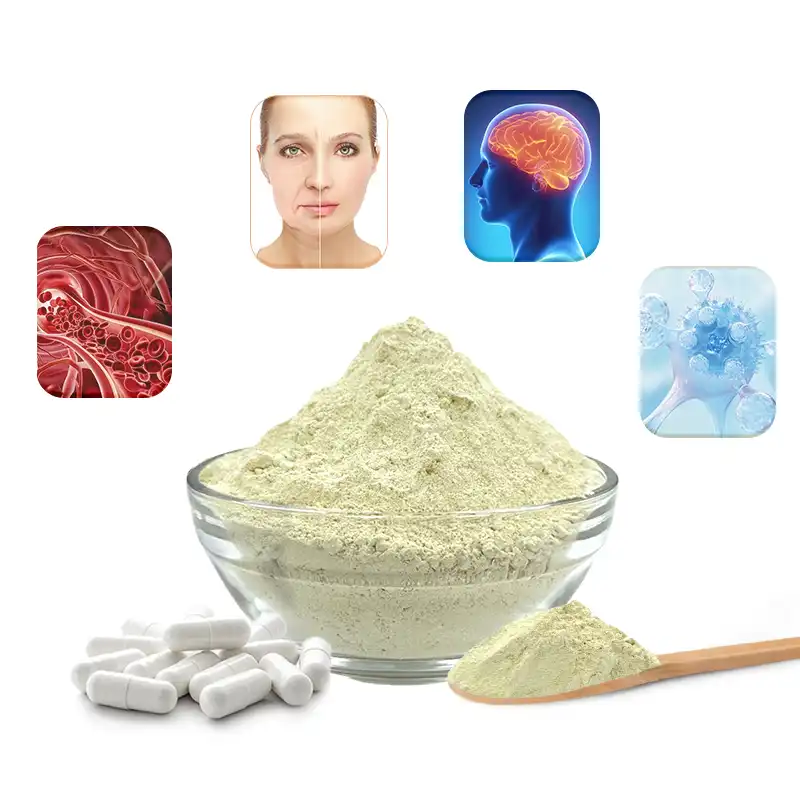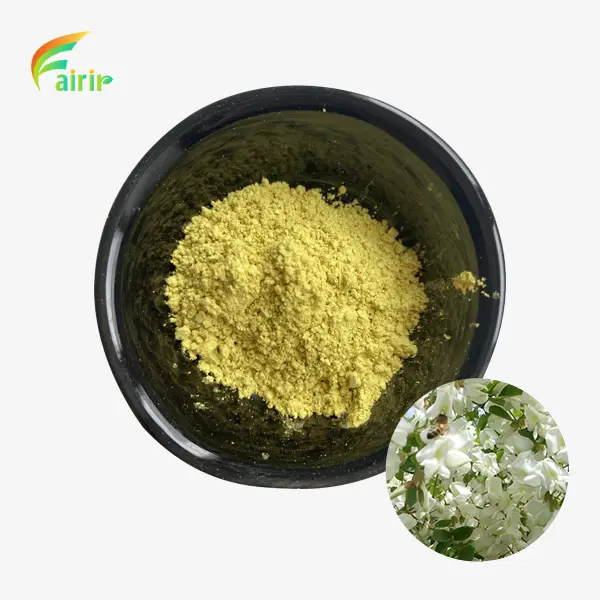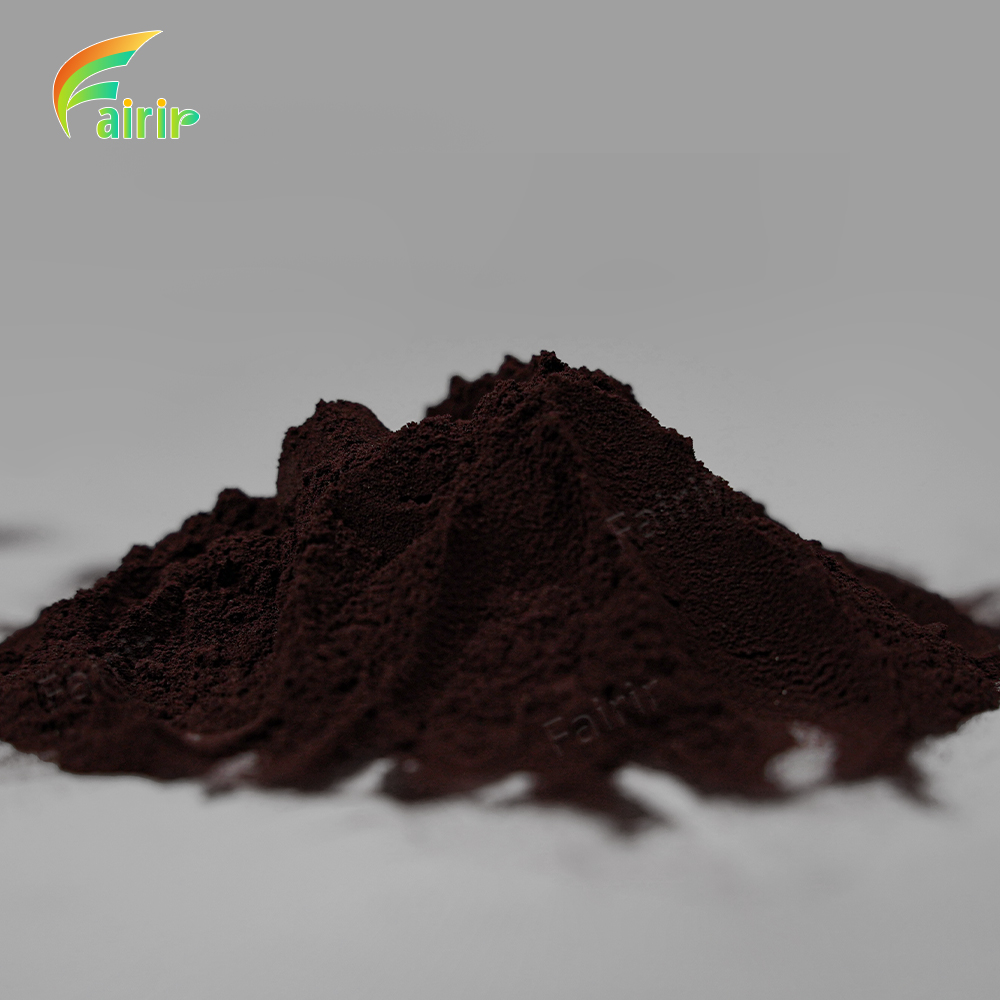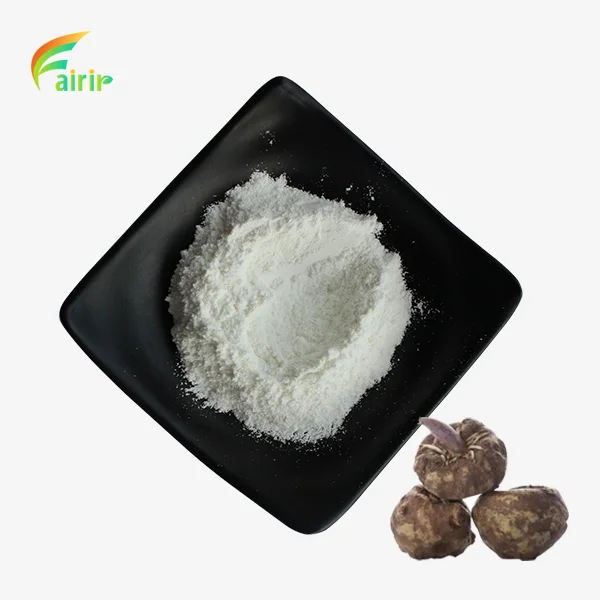How Is Urolithin A Powder Produced from the Gut Microbiome?
Urolithin A powder, a fascinating compound that has gained significant attention in the health and wellness industry, is intricately linked to our gut microbiome. This powerful metabolite is not directly found in foods but is instead produced through a complex interaction between certain dietary compounds and our gut bacteria. Understanding the production of Urolithin A powder from the gut microbiome involves delving into the intricate world of microbial metabolism, dietary polyphenols, and the body's natural processes. This blog post will explore the journey of Urolithin A from its precursors in foods like pomegranates and nuts to its final form as a bioavailable powder, shedding light on the crucial role our gut bacteria play in this transformation and the implications for human health.
Conversion Process from Ellagitannins in Pomegranates and Nuts
The Role of Ellagitannins as Precursors
Urolithin A powder production begins with ellagitannins, complex polyphenols found abundantly in pomegranates, walnuts, and certain berries. These compounds are not directly absorbed by the human body in their original form. Instead, they undergo a series of transformations in the gut. When consumed, ellagitannins first encounter stomach acid and enzymes, which begin to break them down into smaller molecules, primarily ellagic acid. This initial step is crucial as it prepares the compounds for further processing by gut bacteria. The efficiency of this breakdown can vary depending on factors such as the individual's diet, stomach acidity, and the presence of certain enzymes, highlighting the complexity of Urolithin A production even at this early stage.

Bacterial Metabolism in the Colon
As the partially broken-down ellagitannins and ellagic acid reach the colon, they encounter a diverse community of gut bacteria. Not all individuals possess the specific bacterial strains capable of converting these compounds into Urolithin A. The process requires a unique set of microorganisms, primarily from the Gordonibacter and Ellagibacter genera. These bacteria possess specialized enzymes that can cleave and transform ellagic acid into various intermediate compounds, ultimately leading to the formation of Urolithin A. This bacterial metabolism is a critical step in the production of Urolithin A powder, as it's this microbial action that creates the compound of interest from dietary precursors.
Factors Influencing Conversion Efficiency
The efficiency of converting ellagitannins to Urolithin A can vary significantly among individuals, leading to the concept of "Urolithin A producers" and "non-producers." Several factors influence this conversion efficiency. Diet plays a crucial role, as a regular intake of ellagitannin-rich foods can promote the growth of bacteria capable of producing Urolithin A. Additionally, the overall composition of an individual's gut microbiome, influenced by factors such as age, health status, and antibiotic use, can impact the conversion process. Understanding these factors is essential for optimizing natural Urolithin A production and has implications for the development and use of Urolithin A powder supplements.
How Fermentation by Gut Bacteria Enhances Bioavailability
Microbial Enzymes and Their Action
The fermentation process carried out by gut bacteria is pivotal in enhancing the bioavailability of Urolithin A powder. Specific microbial enzymes, particularly those produced by Gordonibacter and Ellagibacter species, are responsible for breaking down the complex structures of ellagitannins and ellagic acid. These enzymes catalyze a series of reactions that not only produce Urolithin A but also modify its structure in ways that make it more easily absorbed by the human body. The bacterial fermentation process essentially pre-digests the compounds, transforming them into a form that our intestinal cells can readily take up. This enzymatic action is crucial because it converts the originally large and complex molecules into smaller, more bioavailable forms, significantly increasing the potential health benefits of Urolithin A.
Absorption Mechanisms in the Gut
Once Urolithin A is produced through bacterial fermentation, its absorption in the gut is facilitated by several mechanisms. The compound's relatively small molecular size and lipophilic nature allow it to pass through the intestinal wall more easily than its precursors. Specific transporters in the intestinal lining may also play a role in actively moving Urolithin A from the gut lumen into the bloodstream. Additionally, the gut's slightly alkaline environment in the lower intestine favors the ionization of Urolithin A, further enhancing its absorption. These combined factors contribute to the high bioavailability of Urolithin A powder, making it an effective supplement form for those seeking its potential health benefits.
Metabolic Fate and Systemic Distribution
After absorption, Urolithin A undergoes further metabolism in the liver, where it may be conjugated with glucuronic acid or sulfate groups. These modifications can affect the compound's distribution throughout the body and its ultimate biological effects. The metabolized forms of Urolithin A are then circulated in the bloodstream, reaching various tissues and organs where they can exert their beneficial effects. Research has shown that Urolithin A and its metabolites can accumulate in muscle tissue, potentially explaining its positive impacts on muscle health and mitochondrial function. Understanding this metabolic fate is crucial for optimizing the delivery and efficacy of Urolithin A powder supplements, ensuring that they reach the target tissues in their most active form.
Comparing Natural Production vs. Supplement Forms for Efficacy
Benefits of Natural Gut Production
The natural production of Urolithin A in the gut offers several unique advantages. Firstly, it's a process that has evolved over millennia, suggesting a natural synergy between our diet, gut microbiome, and health. When Urolithin A is produced naturally, it's often accompanied by other beneficial metabolites and compounds that may work synergistically. Additionally, the gradual production and absorption of Urolithin A through natural means may allow for a more sustained and balanced presence in the body. This natural process also promotes a healthy gut microbiome, as the bacteria responsible for Urolithin A production are nourished and maintained. However, the efficiency of natural production can vary significantly between individuals, with some people being poor producers or non-producers of Urolithin A, which may limit the potential benefits for these individuals.
Advantages of Urolithin A Powder Supplements
Urolithin A powder supplements offer several distinct advantages over relying solely on natural gut production. First and foremost, they provide a consistent and standardized dose of Urolithin A, ensuring that even individuals who are poor producers can benefit from its effects. The purity and concentration of Urolithin A in supplement form can be precisely controlled, allowing for targeted dosing based on specific health goals or research findings. Supplements also bypass the variability in gut microbiome composition and function, providing a direct source of the beneficial compound. This is particularly important for individuals with compromised gut health or those taking medications that may affect their microbiome. Furthermore, Urolithin A powder supplements can be formulated for optimal absorption and bioavailability, potentially enhancing their efficacy compared to natural production.

Comparative Efficacy and Future Research Directions
Comparing the efficacy of naturally produced Urolithin A versus supplement forms is an area of ongoing research. While both forms have shown promise in various studies, direct comparisons are limited. Some research suggests that the bioavailability of Urolithin A from supplements may be higher and more consistent than from natural production. However, the long-term effects and potential synergies of natural production with other gut metabolites are still being explored. Future research directions include investigating the optimal delivery methods for Urolithin A powder supplements, exploring potential combinations with prebiotics or probiotics to enhance gut health, and conducting long-term studies to assess the comparative effects on various health outcomes. As our understanding of the gut microbiome and its role in health continues to evolve, so too will our approach to optimizing Urolithin A production and supplementation.
Conclusion
The production of Urolithin A powder from the gut microbiome represents a fascinating intersection of diet, microbial metabolism, and human health. Whether through natural gut processes or supplementation, Urolithin A offers promising benefits for cellular health, longevity, and overall well-being. As research continues to unfold, the potential applications of Urolithin A in pharmaceuticals, nutraceuticals, and functional foods are likely to expand, offering exciting possibilities for health-conscious consumers and the wellness industry alike.
At Shaanxi Fairir Biotech Co., Ltd. we are at the forefront of this exciting field, leveraging our expertise in plant extracts to produce high-quality Urolithin A powder. Our state-of-the-art facilities and rigorous quality control ensure that we deliver products that meet the highest standards of purity and efficacy. For more information on our Urolithin A powder and other innovative products, please contact us at sales@fairirbiotech.com. We are committed to advancing health and wellness through cutting-edge biotechnology solutions.
FAQ
Q: What foods are rich in ellagitannins, the precursors to Urolithin A?
A: Pomegranates, walnuts, strawberries, and raspberries are excellent sources of ellagitannins.
Q: Can everyone produce Urolithin A naturally in their gut?
A: No, not everyone can produce Urolithin A efficiently. Some people are considered "non-producers" due to their gut microbiome composition.
Q: How long does it take for Urolithin A to be produced after consuming ellagitannin-rich foods?
A: The production of Urolithin A can take several hours to days, depending on individual gut microbiome and digestive factors.
Q: Are Urolithin A supplements suitable for everyone?
A: While generally safe, it's always best to consult with a healthcare professional before starting any new supplement regimen.
Q: Can Urolithin A powder be added to food and beverages?
A: Yes, Urolithin A powder can be incorporated into various food and beverage products, making it versatile for different applications.
References
1. Tomás-Barberán, F. A., García-Villalba, R., González-Sarrías, A., Selma, M. V., & Espín, J. C. (2014). Ellagic acid metabolism by human gut microbiota: consistent observation of three urolithin phenotypes in intervention trials, independent of food source, age, and health status. Journal of Agricultural and Food Chemistry, 62(28), 6535-6538.
2. Ryu, D., Mouchiroud, L., Andreux, P. A., Katsyuba, E., Moullan, N., Nicolet-Dit-Félix, A. A., ... & Auwerx, J. (2016). Urolithin A induces mitophagy and prolongs lifespan in C. elegans and increases muscle function in rodents. Nature Medicine, 22(8), 879-888.
3. Espín, J. C., Larrosa, M., García-Conesa, M. T., & Tomás-Barberán, F. (2013). Biological significance of urolithins, the gut microbial ellagic acid-derived metabolites: the evidence so far. Evidence-Based Complementary and Alternative Medicine, 2013.
4. Cerdá, B., Tomás-Barberán, F. A., & Espín, J. C. (2005). Metabolism of antioxidant and chemopreventive ellagitannins from strawberries, raspberries, walnuts, and oak-aged wine in humans: identification of biomarkers and individual variability. Journal of Agricultural and Food Chemistry, 53(2), 227-235.
5. Singh, A., D'Amico, D., Andreux, P. A., Fouassier, A. M., Blanco-Bose, W., Gouspillou, G., ... & Auwerx, J. (2022). Direct supplementation with Urolithin A overcomes limitations of dietary exposure and gut microbiome variability in healthy adults to achieve consistent levels across the population. European Journal of Clinical Nutrition, 76(2), 297-308.
6. González-Sarrías, A., García-Villalba, R., Núñez-Sánchez, M. Á., Tomé-Carneiro, J., Zafrilla, P., Mulero, J., ... & Espín, J. C. (2015). Identifying the limits for ellagic acid bioavailability: A crossover pharmacokinetic study in healthy volunteers after consumption of pomegranate extracts. Journal of Functional Foods, 19, 225-235.











_1751965378790.webp)